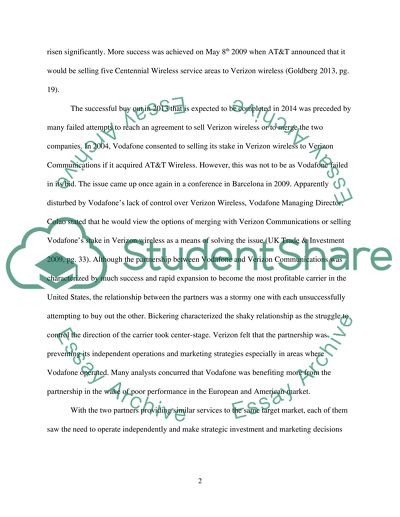Cite this document
(“Vodafone's sale of ownership of joint venture to Verizon Essay”, n.d.)
Vodafone's sale of ownership of joint venture to Verizon Essay. Retrieved from https://studentshare.org/finance-accounting/1493388-vodafoneyies-sale-of-ownership-of-joint-venture-to
Vodafone's sale of ownership of joint venture to Verizon Essay. Retrieved from https://studentshare.org/finance-accounting/1493388-vodafoneyies-sale-of-ownership-of-joint-venture-to
(Vodafone'S Sale of Ownership of Joint Venture to Verizon Essay)
Vodafone'S Sale of Ownership of Joint Venture to Verizon Essay. https://studentshare.org/finance-accounting/1493388-vodafoneyies-sale-of-ownership-of-joint-venture-to.
Vodafone'S Sale of Ownership of Joint Venture to Verizon Essay. https://studentshare.org/finance-accounting/1493388-vodafoneyies-sale-of-ownership-of-joint-venture-to.
“Vodafone'S Sale of Ownership of Joint Venture to Verizon Essay”, n.d. https://studentshare.org/finance-accounting/1493388-vodafoneyies-sale-of-ownership-of-joint-venture-to.


